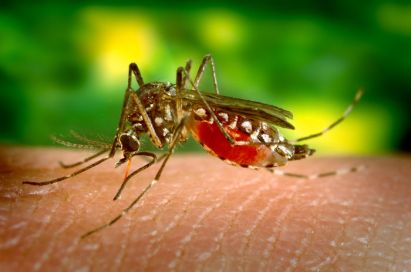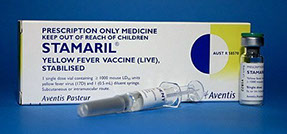Yellow fever is a viral infection transmitted by mosquitoes. The virus is common in Africa and some parts of South America, and the Caribbean region.
Some people may develop flu-like symptoms and recover within a short time after contracting yellow fever, while others develop severe symptoms such as:
- Vomiting
- High fever
- Jaundice (yellow skin)
The World Health Organisation (WHO) recommends travellers visiting high-risk areas to be immunised before entering those regions.

What Is A Yellow Fever Vaccine?
A yellow fever vaccine is an injectable vaccine that offers protection against yellow fever for tourists and residents living in regions where the virus is present.
Since the risk of yellow fever is high, and the vaccine has been determined to be effective, the National Health Service (NHS) recommends it to adults and children above nine months who will be travelling to high-risk areas.
Some countries will require you to present proof of yellow fever immunisation for entry. Therefore, everyone who gets vaccinated receives an International Certificate of Vaccination to verify that they have been immunised.
How Does the Yellow Fever Vaccine Work?
After getting a yellow fever vaccine, your immune system will produce antibodies against the virus. These antibodies will protect you from being infected by the virus when you travel to a high-risk region. One single dose of the vaccine will last for at least ten years. However, some countries will require a 5-10 years yellow fever vaccination certificate before allowing you entry. Therefore, you should consult with your travel clinic doctor to determine if you need a yellow fever booster.

What Are theSide Effects of Yellow Fever Vaccines?
Just like any other medication, some people may experience side effects such as:
- Fever
- Muscle and joint pain
- Swelling or soreness around the injection area
Other symptoms that can occur as a result of a severe allergic reaction are:
- Irritability and nervousness
- Severe headache
- Rapid heartbeat
- Vomiting
- Confusion
- Dizziness
- Swelling of the throat, face, and tongue.


0 comments:
Post a Comment